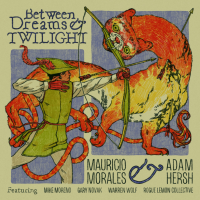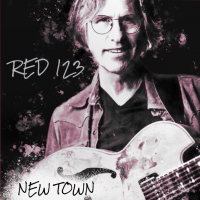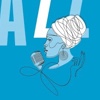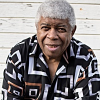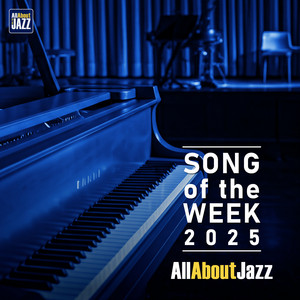Home » Search Center » Results: saxophone, tenor
Results for "saxophone, tenor"
Results for pages tagged "saxophone, tenor"...
Barney Wilen

Born:
Barney Wilen made a strong impression on the Paris scene in the mid 1950s. Wilen was a self taught player and became one of Europe's best and more modern saxophonists. Bernard Jean Wilen, AKA Barney was born March 4, 1937, in Nice to a French mother and an American father. He studied the alto and, at 16, moved to Paris where he played with Henry Renaud, Bobby Jaspar and Jimmy Gourley He grew up mostly on the French Riviera; the family left during World War II but returned upon its conclusion. According to Wilen himself, he was convinced to become a musician by his mother's friend, the poet Blaise Cendrars
Results for pages tagged "saxophone, tenor"...
Frank Wess

Born:
Frank Wess (born January 4, 1922 in Kansas City) is an American jazz musician, who has played saxophone (both alto and tenor) and flute.
He began with classical music and played in Oklahoma. He later switched to jazz on moving to Washington, D. C. and by nineteen was working in the Big Bands. His career would be interrupted during World War II although he did play with a military band in the period. On returning from service he joined Billy Eckstine's orchestra.
He returned to DC a few years after this and received a degree in flute at the city's Modern School Of Music. From 1953 he joined Count Basie's band, playing flute and tenor sax. He reverted to alto sax in the late '50s, and left Basie's band in 1964. From 1959 to 1964 he won Down Beat's critic poll for flute. Since then he has done a variety of TV shows and telethons. He was a member of Clark Terry's big band from 1967 into the '70s and played in the New York Quartet (with Roland Hanna). In the '80s and '90s, he worked with Kenny Barron, Rufus Reid, Buck Clayton, Benny Carter, Billy Taylor, Harry Edison, Mel Tormé, Ernestine Anderson, Louie Bellson, John Pizzarelli, Howard Alden, Dick Hyman, Byron Stripling, Jane Jarvis, Frank Vignola and was a featured member of the Toshiko Akiyoshi Jazz Orchestra.
Results for pages tagged "saxophone, tenor"...
Bobby Wellins

Born:
Saxophonist Bobby Wellins was born in Scotland in 1936 and grew up in the Gorbals. His mother and father were both in the variety side of show business, and his father played a big part in his early musical education. He heard a lot of jazz in the family home including Jimmy Lunceford, Duke Ellington and Benny Goodman, but when his father brought home a record by Charlie Parker and Dizzy Gillespie he was bitten with the bebop bug. He played piano, alto sax and clarinet before joining the RAF as a musician playing tenor sax. After leaving the RAF and playing in a few Scottish bands he made the inevitable move to London for an apprenticeship with the big touring bands including a trip to the USA with Vic Lewis in 1955
Results for pages tagged "saxophone, tenor"...
Ben Webster

Born:
Ben Webster was considered one of the "big three" of swing tenors along with Coleman Hawkins (his main influence) and Lester Young. He had a tough, raspy, and brutal tone on stomps (with his own distinctive growls) yet on ballads he would turn into a pussy cat and play with warmth and sentiment. After violin lessons as a child, Webster learned how to play rudimentary piano (his neighbor Pete Johnson taught him to play blues). But after Budd Johnson showed him some basics on the saxophone, Webster played sax in the Young Family Band (which at the time included Lester Young). He had stints with Jap Allen and Blanche Calloway (making his recording debut with the latter) before joining Bennie Moten's Orchestra in time to be one of the stars on a classic session in 1932. Webster spent time with quite a few orchestras in the 1930s (including Andy Kirk, Fletcher Henderson in 1934, Benny Carter, Willie Bryant, Cab Calloway, and the short-lived Teddy Wilson big band). In 1940 (after short stints in 1935 and 1936), Ben Webster became Duke Ellington's first major tenor soloist
Results for pages tagged "saxophone, tenor"...
Tim Warfield

Born:
Veteran saxophonist Tim Warfield, Jr., a native of York, Pennsylvania, began studying the alto saxophone at age nine. He switched to tenor saxophone during his first year at William Penn Sr. High School where he participated in various musical ensembles winning many jazz soloist awards, including second out of forty competitors at the Montreal Festival of Music in Canada. After high school, Warfield attended Howard University in Washington, D.C. for two years before leaving to lead and co-lead groups in the Central Pennsylvania and Baltimore/Washington areas. In 1990, he was chosen to be a member of trumpeter and CBS/Sony recording artist Marlon Jordan's Quintet, of which he remained a member for three years. In 1991, he was selected to record "Tough Young Tenors" on the Island/Antilles label, which was listed as one of the top ten recordings of the year by the New York Times, ultimately rising to number five, on the Billboard top 100 Jazz charts
Results for pages tagged "saxophone, tenor"...
David S. Ware

Born:
David S. Ware played the saxophone for over 40 years. First in New Jersey public school bands, and in informal practice sessions with Sonny Rollins as a youth in the '60s; then as part of the fertile NYC Loft Jazz era of the '70s. During this decade, he joined the Cecil Taylor Unit and Andrew Cyrille's Maono. He also worked together with drummers Beaver Harris and Milford Graves. In the early '80s he toured Europe with both Andrew Cyrille and his own trio. In mid-decade, Ware purposefully engaged himself in a period of extensive woodshedding - in order to further develop both his personal sound and his visionary group concept. The '90s saw the full-on actualization of this group, and the recognition of David S
Results for pages tagged "saxophone, tenor"...
Bennie Wallace

Born:
Born in Chattanooga, Tennessee, on November 18, 1946, Bennie Lee Wallace took up the tenor saxophone at age 12. He worked after hours clubs around Tennessee during his high school and college years and graduated on clarinet from the University of Tennessee in 1968. Three years later he moved to New York where he played concerts and club gigs with musicians like Barry Harris, Cecil McBee, Buddy Rich, Monty Alexander, Glen Moore and others. In 1979, Bennie Wallace burst onto the international Jazz scene with his award-winning first release on Enja Records, The Fourteen Bar Blues. The critical acclaim was overwhelming, hailing Bennie Wallace as the "New Saxophone Giant", the youngest of a lineage including Ben Webster, Coleman Hawkins, Albert Ayler and Sonny Rollins
Results for pages tagged "saxophone, tenor"...
Charlie Ventura

Born:
Tenor man Charlie Ventura was was a prominent fixture on the jazz scene during his era. Born Charles Venturo he was one of thirteen children from a musical family who went on to become a jazz legend, and was named "Number One Tenor Saxophonist" by Down Beat Magazine in 1945. In the summer of 1942, Charlie got a call at his day job at the Philadelphia Navy yard to join Gene Krupa's band. Unwilling to relinquish the security of a paycheck, he turned them down. Then came the second phone call and before long, Charlie was on the road with the band becoming a featured soloist, along with trumpet star, Roy Eldridge and singer Anita O'Day
Results for pages tagged "saxophone, tenor"...
Phil Urso
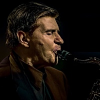
Born:
Subtlety and restraint defined the playing of Phil Urso, amember of the1950s' cool school who owed a strong artistic debt toLester "Pres" Youngbut never came across as a clone of him. Urso started outon clarinet, butthe tenor sax became his primary instrument after hestudied it in highschool. Though not that well-known, Urso was a solid andexpressive jazzmanwho played with Woody Herman, Jimmy Dorsey, MilesDavis, Terry Gibbs, OscarPettiford and others in the 1950s. In 1954, he co-led aquintet withtrombonist Bob Brookmeyer that recorded for Savoy, butUrso's best-knownassociation came in 1955 and 1956, when he was asideman for Chet Baker.
Results for pages tagged "saxophone, tenor"...
Stanley Turrentine

Born:
Stanley William Turrentine was one of the most distinctive tenor saxophonists in jazz. Known for his big, warm, sound, "The Sugar Man" or the original "Mr. T" found inspiration in the blues and turned it into a hugely successful career with a #1 hit and four Grammy nominations — first in R&B and then in jazz. Born on April 5, 1934 in Pittsburgh, a city that has produced more than its share of jazz masters, Turrentine hailed from a musical family. His saxophone-playing father was a big influence, as was his stride piano-playing mother and older brother, the late trumpeter Tommy Turrentine. One of Stanley's earliest influences on sax was tenor great Illinois Jacquet






